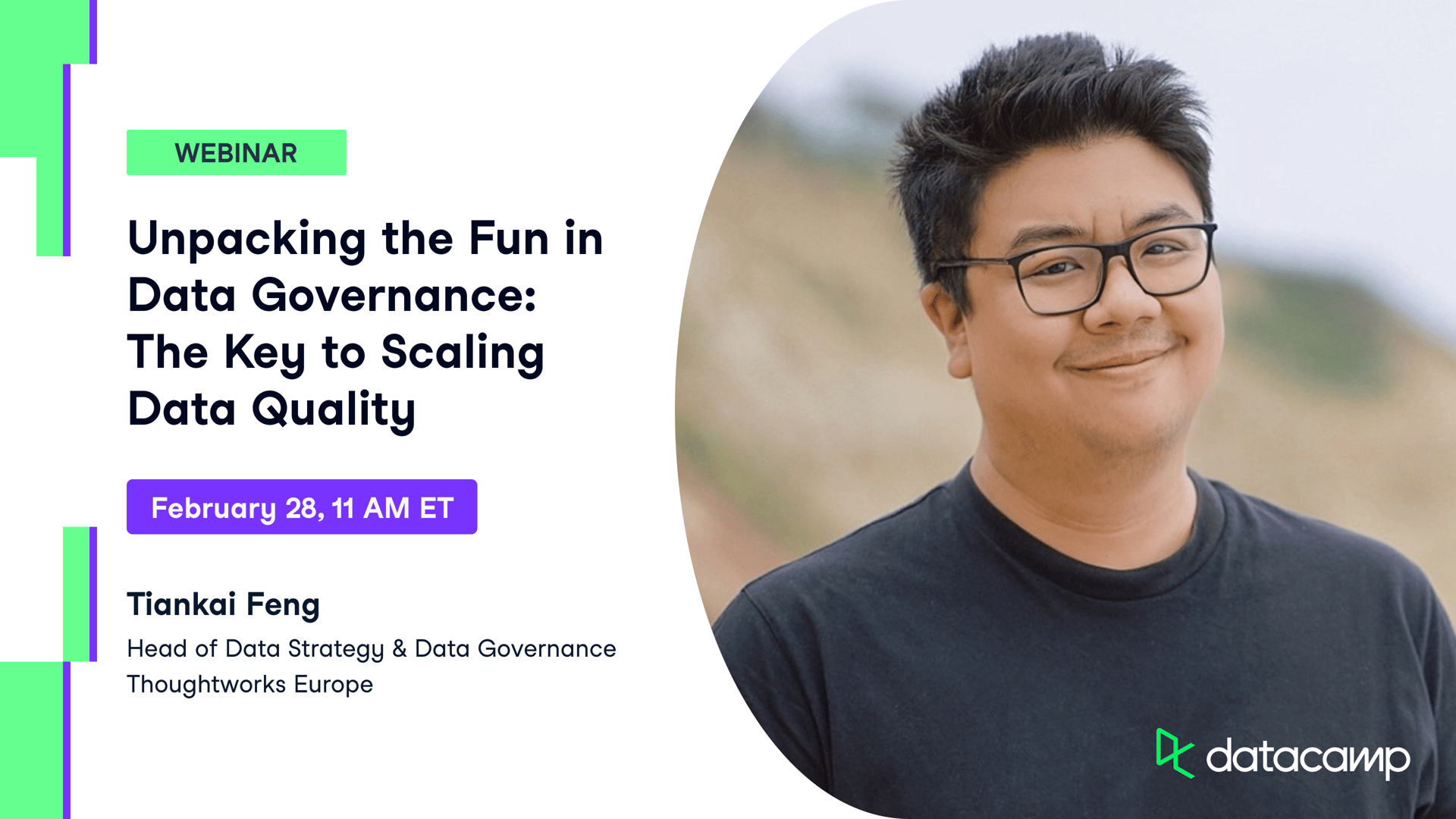Speakers
Training 2 or more people?
Get your team access to the full DataCamp library, with centralized reporting, assignments, projects and moreUnpacking the Fun in Data Governance: The Key to Scaling Data Quality
March 2024
Related
webinar
Crafting a Lean and Effective Data Governance Strategy
In this webinar, we will guide you through the nuances of developing a robust data governance strategy that drives value for your organization.webinar
From Data Governance to Data Discoverability: Building Trust in Data Within Your Organization
In this session, industry leaders share strategies for improving data quality, fostering a culture of trust around data, and balancing robust governance with the need for accessible, high-quality data.webinar
How Data Governance Enables Scalable Data Science
Learn how data governance enables data democratization and higher trust in datawebinar
Scaling Data ROI: Driving Analytics Adoption Within Your Organization
In this session, Laura Gent Felker, Tiffany Perkins-Munn, and Omar Khawaja will explore best practices when it comes to scaling analytics adoption within the wider organization.webinar
RADAR: The Analytics Edition - From Data Governance to Data Discoverability: Building Trust in Data Within Your Organization
In this session, industry leaders share strategies for improving data quality, fostering a culture of trust around data, and balancing robust governance with the need for accessible, high-quality data.webinar
